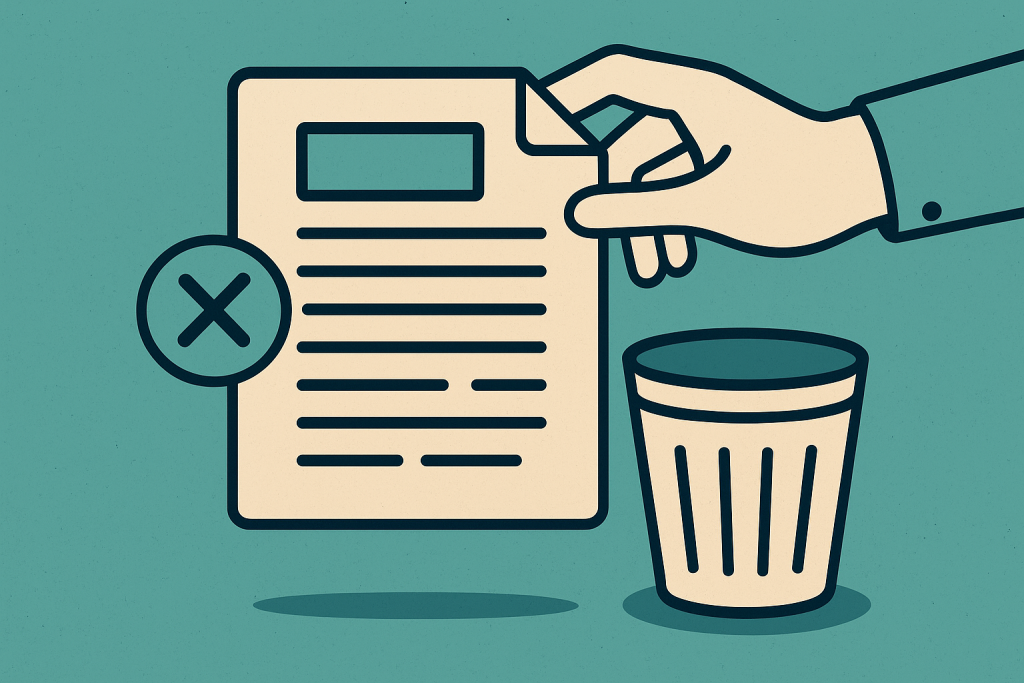In a world overflowing with content, there’s a growing need to ask: when should you let go of information you’ll never use?
From saved articles we’ll never read to bookmarked tutorials we’ll never apply, we’re all quietly drowning in digital clutter. This isn’t just a nuisance—it’s a cognitive tax. Our brains, constantly pinged by reminders of unused data, become less effective at prioritizing what actually matters.
The idea of shedding unused knowledge isn’t about becoming ignorant. It’s about making room for relevance. And with the rising popularity of digital decluttering and intentional information diets, this concept is moving from fringe minimalism to mainstream productivity.

The Problem With Holding on to Everything
Information hoarding has quietly become a modern default. Here’s why it’s problematic:
- Cognitive Overload: Every piece of saved information adds to a growing mental “to-do” list, even if it’s subconscious. This reduces focus and productivity.
- Decision Fatigue: The more you store, the more you feel you should review or act on. This can delay decisions and dilute clarity.
- False Productivity: Saving information can feel like progress, but without application, it often becomes passive procrastination.
A study by the University of California, Irvine, found that people take an average of 23 minutes to refocus after a distraction—many of which stem from information overload (Mark, Gudith, & Klocke, 2008). Multiply that over a day, and you start to see the cost of unfiltered digital input.
When to Let Go of Information You’ll Never Use
This is the core of the shift: understanding not all information deserves to stay. Use the following guide to help decide what to discard.
1. You’ve Held It for Over 3 Months Without Using It
If a saved article, PDF, or course module has been untouched for three months, chances are it won’t become relevant in the next three.
- Ask yourself: If this disappeared tomorrow, would I notice or care?
2. It Doesn’t Align With Your Current or Future Goals
Interests shift. That JavaScript tutorial might have made sense last year, but if your current focus is in UX design, it’s probably excess baggage.
- Let go of aspirational clutter that no longer fits your path.
3. It’s Widely Available Elsewhere
If the knowledge is evergreen and easy to Google, saving it for “just in case” adds little value.
- The internet isn’t going anywhere. Use it as a library, not a storage locker.
4. It Causes Stress Instead of Curiosity
If seeing a certain item (e.g., unread newsletter, research whitepaper) triggers guilt or anxiety, that’s a signal—it’s not information you’re eager to use. It’s a burden disguised as a resource.
Practical Ways to Declutter Digital Knowledge
Digital minimalism is no longer a trend—it’s a strategic approach to managing attention. Here’s how to take action:
Audit Your Saves Weekly
- Review your bookmarked links, PDFs, saved videos, and course enrollments.
- Ask: Is this still useful to the person I am today?
Use a “30-Day Parking Lot”
- Move questionable information into a separate folder.
- If you haven’t touched it after 30 days, delete it.
Lean Into Summary Tools
- Services like Readwise or Notion Web Clipper can help distill important content rather than hoarding entire sources.
Limit New Information Intake
- For every new item you save, delete or act on an old one.
- This balances curiosity with application.
The Rise of Intentional Information Management
Just as we’ve learned to unsubscribe from unwanted emails, people are learning to unsubscribe from unnecessary information entirely. This aligns with broader movements like digital hygiene and sustainable productivity.
Tiago Forte, in his book Building a Second Brain (2022), argues that managing information is a skillset that should serve your creativity—not suffocate it. By curating what you keep, you create space for deeper thinking.
Even Google’s own internal practices now promote information pruning. In 2023, they began encouraging teams to sunset old documents and internal pages, reducing knowledge sprawl to increase clarity and team alignment.
Letting Go Isn’t Loss—It’s Strategy
Releasing irrelevant data isn’t about giving up; it’s about giving yourself permission to focus. The average person consumes 34 gigabytes of information daily. Most of that never gets applied.
Choosing what to ignore is now as important as choosing what to consume.
Letting go helps you:
- Sharpen your focus
- Reduce decision fatigue
- Build a personalized, relevant knowledge base
- Stay agile in your learning
Final Thoughts
We are all curators of our own mental libraries. And as with any well-kept archive, maintenance is everything. Keeping every snippet of knowledge might feel responsible, but it quietly clutters the very clarity we seek.
Ask yourself regularly: Does this still serve me?
If the answer is no—let it go.
References
- Mark, G., Gudith, D., & Klocke, U. (2008). The Cost of Interrupted Work: More Speed and Stress. Available at: https://ics.uci.edu (Accessed: 24 June 2025).
- University of California, San Diego (2009) How Much Information? Available at: https://hdsr.mitpress.mit.edu (Accessed: 24 June 2025).
- Google Blog (2023) Reducing Knowledge Overload. Available at: https://www.blog.google (Accessed: 24 June 2025).






